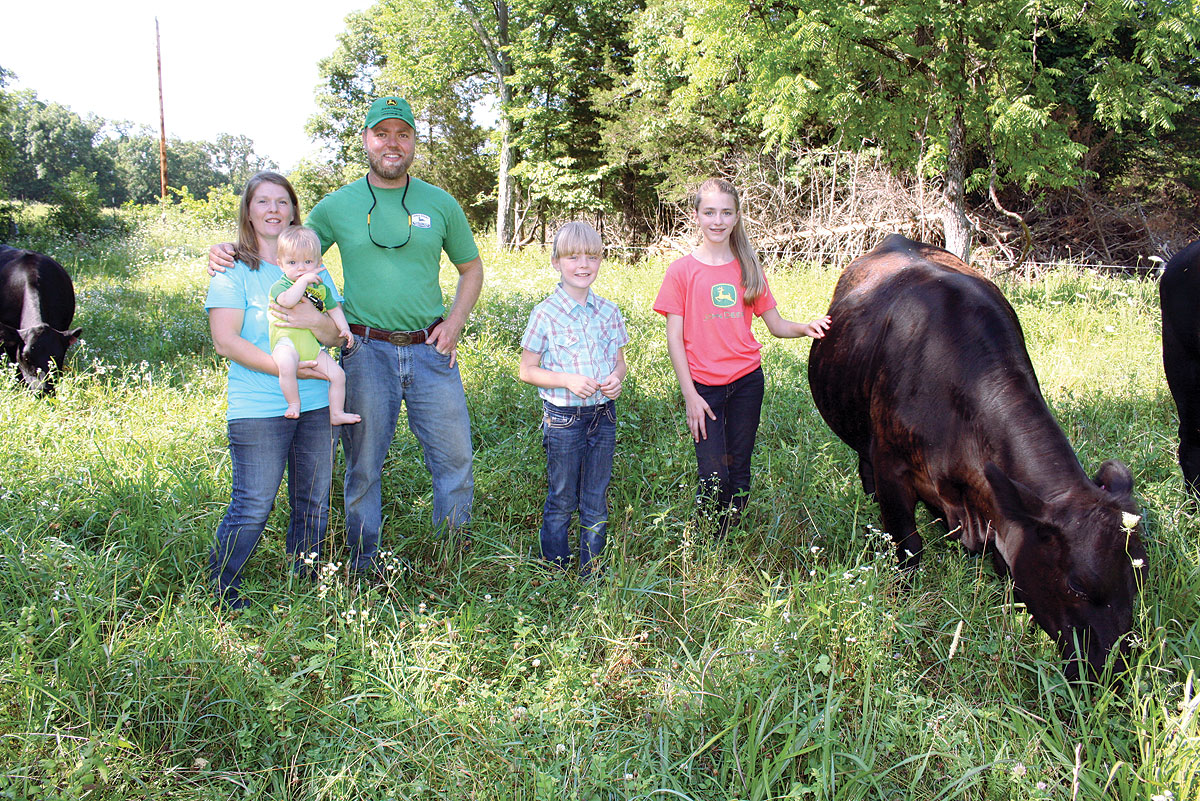
Lifetime Missourians and local cattle ranchers Danny and Teresa McCurry were used to the state’s predictably erratic weather. Like the old saying goes, “If you don’t like the weather, stick around it’ll change in 20 minutes.” They still cringe, however, when recalling the devastation brought on by the not-so-distant drought of 2012.
In addition to owning/operating McCurry Trailer Sales in Springfield and Harrisonville, Mo., Danny and Teresa run a cow/calf operation headquartered in the Ash Grove, Mo., area. That put them right in the middle of the worst drought in 50 years that brought record-breaking high temperatures, very little rainfall, left thirsty cattle, withering crops and dry wells.
At the beginning of 2012, only 5 percent of Missouri was abnormally dry but by June 19, majority the state was extremely dry and under severe drought conditions.
At Governor Nixon’s request, in mid-July the U.S. Department of Agriculture declared all of Missouri a disaster area as a result of the drought. At that point, Missouri had seen temperatures consistently above 90 degrees, averages closer to 100 degrees and, in most areas, less than an inch of rain. While there was little prospect of relief, resilient Missourians never gave up hope. On July 24, 2012, the governor announced an emergency program to help producers drill or deepen water wells. The emergency conservation program provided an initial $2 million, and later another $5 million, dedicated from the Missouri Soil & Water Conservation Program to fund 90 percent of the eligible project cost with a maximum cost-share award of $20,000.
In the first two days after the governor announced the emergency conservation program more than 600 farmers’ submitted applications and the Soil & Water Conservation had approved 33 contracts averaging $6,300 each. After two weeks they had received 11,000 applications with Greene County receiving 81 cost-share projects.
What did you have to do to get approved for a new well?
“I went straight over to the Greene County Soil and Water District building next to the stockyards and filled out the application,” Danny said. “Then, officials from the DNR (Department of Natural Resources) came out and looked at our property to see if we qualified. It was awful… In normal years there are a lot of ponds on this place, but we were down to mud holes,” he recalled. “In a normal dry year, there is plenty of water, but this was an extremely unusual circumstance. They (DNR) definitely saw our need. Our cows were standing in the mud holes. We were down to the point we were going to have to sell the cattle.”
How long did it take to get the well?
“It took two weeks to get the approval, and six weeks to get the well,” Danny recalled. “I called the well driller to schedule an appointment but the problem was that so many people were approved, it was hard to get the driller out because they were so busy. The cows were out there standing in the mud holes; they started looking like pigs. It was so pathetic.”
How has the ranch benefited?
“We have eliminated two muddy ponds and now that the cattle have adequate water while they graze the whole place. It’s been a real good deal.”
Now that the drought is over, and things at the ranch are pretty much back to normal, one of Danny’s favorite pastimes is writing and reciting cowboy poetry and performing with his music buddy Greg Burke in Cowboy Tradition. “The poetry I write is mostly about true events that happened working cattle.”
Danny and Greg released a CD titled “Uncurried & Unbrushed.” They perform at, barbecues, cattlemen’s meetings and agricultural events.
To view a sample of Danny’s poetry visit ext.ozarksfn.com.






